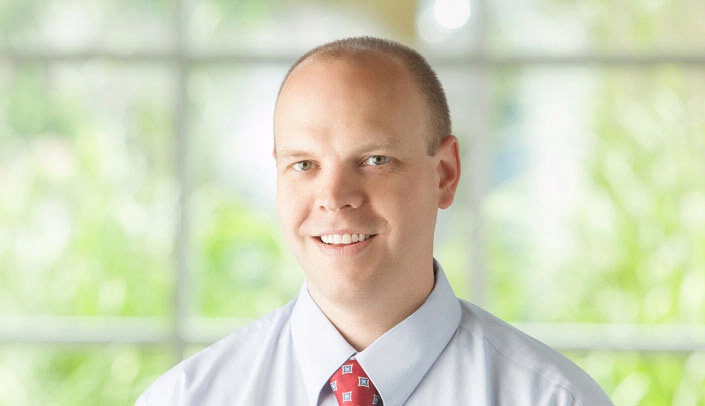UNMC and Children’s Hospital& Medical Center is a joint site in a National Institutes of Health study to chart the progression of the brittle bone disease osteogenesis imperfecta (OI).
This study marks UNMC’s/Children’s first NIH-backed study since it was accepted into the national Rare Disease Clinical Research Network.
Membership in the consortium, which began in July, puts UNMC and Children’s on the cutting edge of brittle bone research, said Eric Rush, M.D., assistant professor, Munroe-Meyer Institute, pediatric geneticist at Children’s and site primary investigator for the study.
“All of the major OI centers around the country are part of this consortium,” he said. “We approached the investigators about being a part of the consortium, because between here at UNMC and at Children’s Hospital & Medical Center, we’re one of the largest OI clinics in the country.”
The UNMC/Children’s partnership has long been a clinical leader in the care of patients with brittle bone diseases, Dr. Rush said.
“Now the research piece is coming online for us. We’re starting to do more research, so all different facets of brittle bone diseases — care, research and education — are going to be done here at UNMC and Children’s.
“It’s very exciting to get a clear picture for what the natural history of these diseases are, which we don’t completely understand, especially as people age.”
Being one of the sites for an NIH-funded multi-center trial not only recognizes UNMC’s leadership in this rare bone disease, but its growing reputation in rare genetic diseases in general, said Jennifer Larsen, M.D., vice chancellor of research.
“For rare diseases, it is important to collaborate with other centers,” Dr. Larsen said. “This trial also provides an opportunity for our patients to help understand and better chart the future of management and outcomes of this rare bone disease.”
UNMC’s Munroe-Meyer Institute may become involved with companion studies as part of the consortium, Dr. Rush said.
“One of the things MMI has always believed in is really transformative care, and that is one of the things Chancellor (Jeffrey) Gold has discussed, as well,” Dr. Rush said. “That’s really what we’re trying to do — transformative care. To truly transform that care, you not only need the clinical piece and the bedside, but you need to be involved with the research aspects as well. That’s one reason why MMI and UNMC/Children’s is a good fit for this.”
Clinical expertise also offers another advantage, he said — knowing what questions to ask.
“It’s hard to develop really good clinical research questions unless you’re the clinician who is seeing the patients,” he said. “Part of this is seeing where the gaps exist. Part of this is also being the person who has to say, ‘I don’t know’ when you’re asked by parent or patient.”
